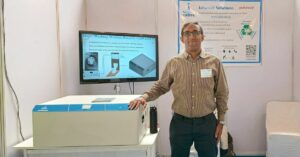Pune Startup’s Partnership Model Fits Air Filters in Public Spaces For Free
Fitting large-capacity air filters across nine cities, this Pune startup is operating under a ‘free’ model where sponsorship pays for clean air
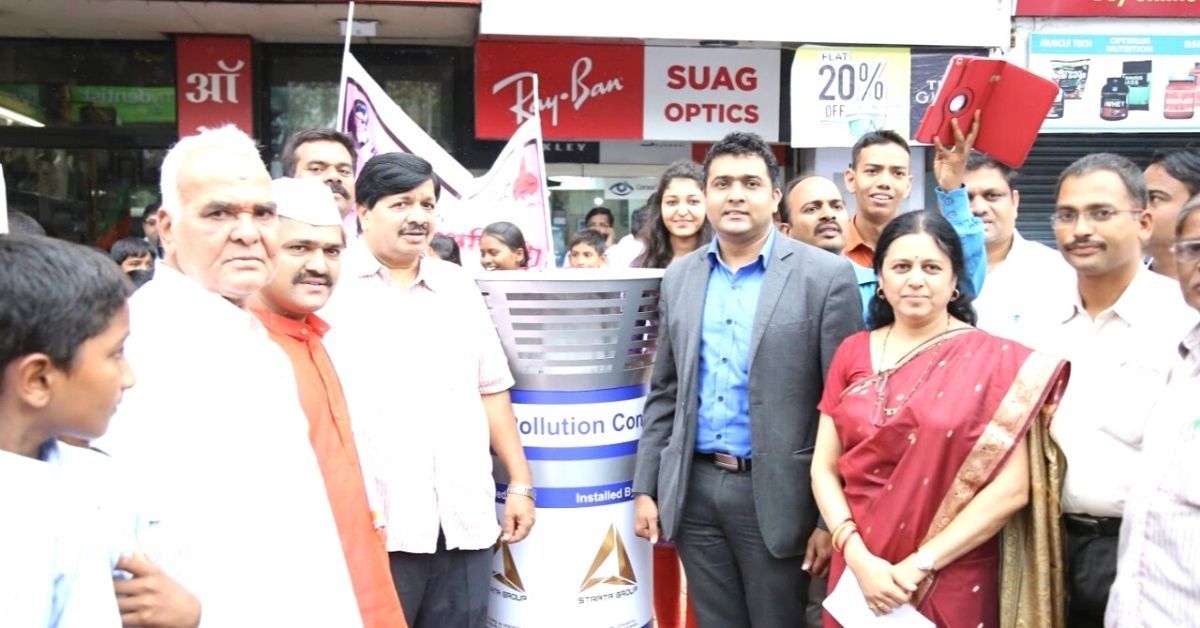
“India is one of the worst affected countries due to air pollution. Unfortunately, it ranks among the top polluted counties in the globe,” says Amol Chaphekar.
While this is a common enough complaint, the worsening situation urgently demands a solution that helps reduce the toxicity in the air we breathe. More specifically, solutions have to go beyond a filter in your own home. We have to look to filtering large public spaces in a cost-effective manner.
And Amol, a Pune-based entrepreneur, is on the forefront of one such solution, already in place in nine cities across India.
Amol founded Strata Enviro in 2016 to find sustainable solutions to clean the air. His air purifiers today are used in Bengaluru, Pune, Jaipur, Hyderabad and Nashik, among other cities.
“About 32 per cent of Hyderabad’s traffic cops suffer from lung disorders due to air pollution, 50 per cent of the children in Bengaluru have breathing ailments, and particulate matter levels in Delhi are sometimes 16 times higher than what is considered safe,” Amol claims, adding that he launched the company specifically to treat air pollution in public spaces.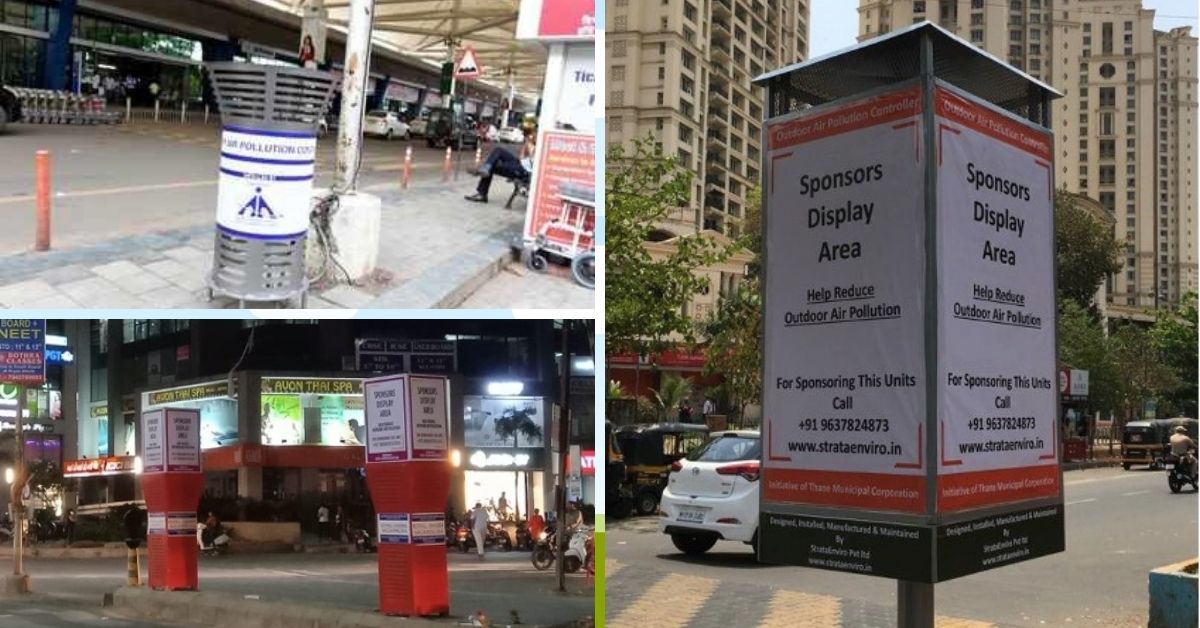
“The main objective of the installation is to give clean uncontaminated air for the public. The purifiers are specifically installed in places that can help large gatherings,” he said.
“The idea was to bring simple and feasible solutions to clean air. We have devised a purifier which absorbs the surrounding air and filters it with the technology fitted in,” he adds.
The entrepreneur said these air purifiers are installed mainly in public spaces like railway stations, airports, traffic signals, fuel stations, toll booths, malls, bus stands, schools, hospitals, housing societies, banks and IT parks.
“The installations are done in public spaces where there is heavy congestion and flow of air is restricted,” he said adding that his firm has installed about 3,000 air purifiers, cleaning air the volume of 37 football fields each minute.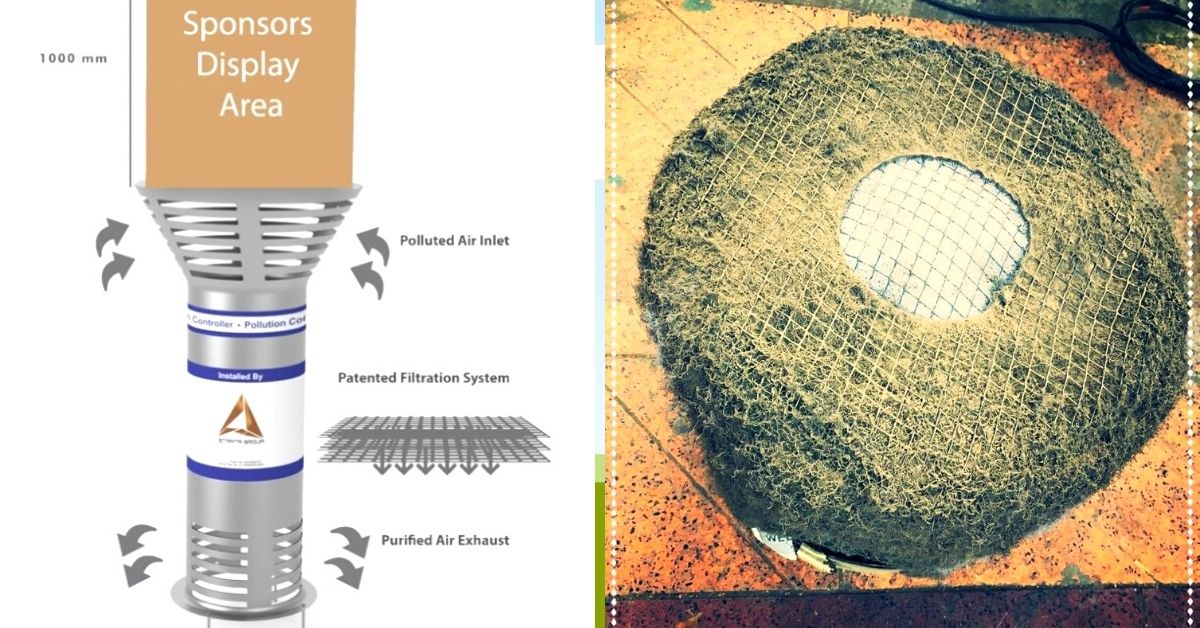
Explaining the idea of free pure air at public junctions, Amol says, “People are willing to spend on air purifiers for their personal use. However, the question was who would pay to clean the air for a larger cause?”
The question led to the devising of a self-sustaining model.
“Businesses often spend money on branding and the same applies here. The name of the company or individuals sponsoring the purifier is mentioned to recognise their contribution for clean air,” Amol adds.
The earnings only come from private players like IT companies or hospitals who buy and install the purifiers in closed premises. Amol charges maintenance charges, which mainly consists of operations and the changing of filters. For purifiers installed at airports or traffic signals, the costs are covered with the support of sponsors.
Explaining how they work, Amol said, “The air purifiers suck the surrounding air into the filters installed inside them. The filters then absorb the particulate matter, even as small as (pm) 2.5, and release clean air.”
During the process, the air filter also cleans bacteria and germs through UV light.
“Harmful elements like nitrogen and sulphur are treated through a photocatalytic reaction,” he added.
Amol said according to reports the difference between the inlet and outlet air is about 80 per cent.
However, the improvement of the resulting air varies. “The ambient air quality improvement is about 34 per cent. The air quality depends on a lot of factors including the time of the day, the air pollution levels and the location,” Amol said.
These reports have been validated by the state or central pollution control board agency, as the case may be.
The innovator further said about 300 grams of residue is collected and the filters get replaced every six months or a year.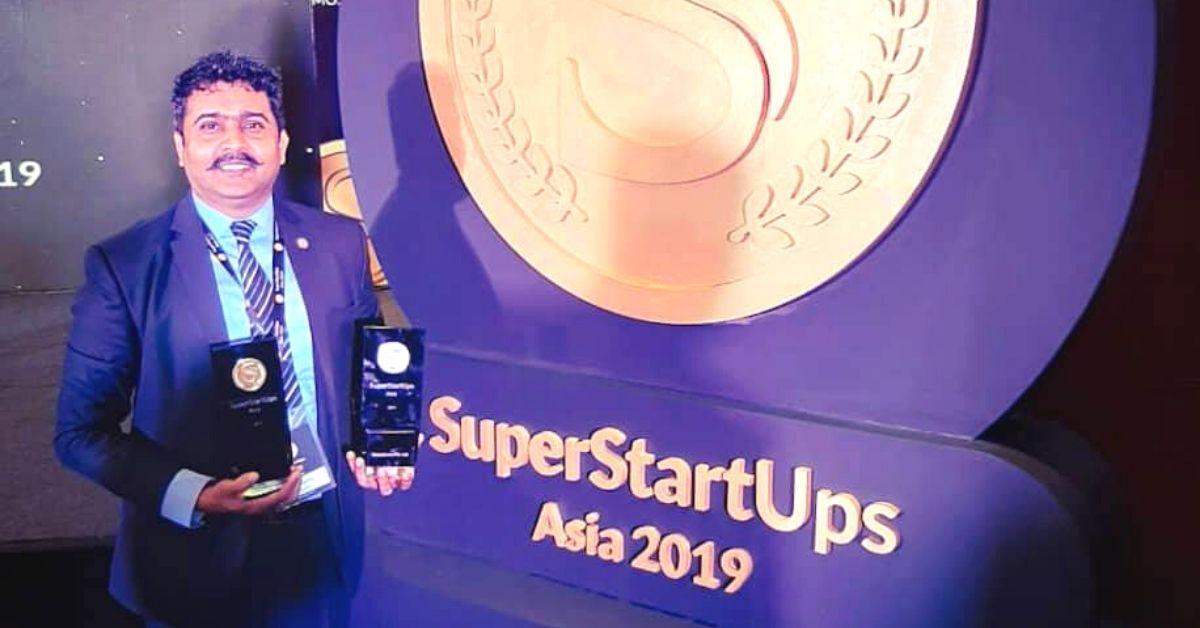
However, a senior scientist at Indian Institute of Tropical Meteorology (IITM, Pune), VS Murthy cautioned these filters do have multiple factors that need to be considered before they can be declared a success.
“The air purifying systems do work with absorbing particulate matters. However, the efficiency depends on several factors like the traffic, air quality before installing the filters and also the changing weather conditions,” he said.
Murthy said a lot more could be known after long term research and observations, but for the time being, such solutions are good for open spaces.
(Edited by Vinayak Hegde)
This story made me
- 97
- 121
- 89
- 167
Tell Us More
We bring stories straight from the heart of India, to inspire millions and create a wave of impact. Our positive movement is growing bigger everyday, and we would love for you to join it.
Please contribute whatever you can, every little penny helps our team in bringing you more stories that support dreams and spread hope.







